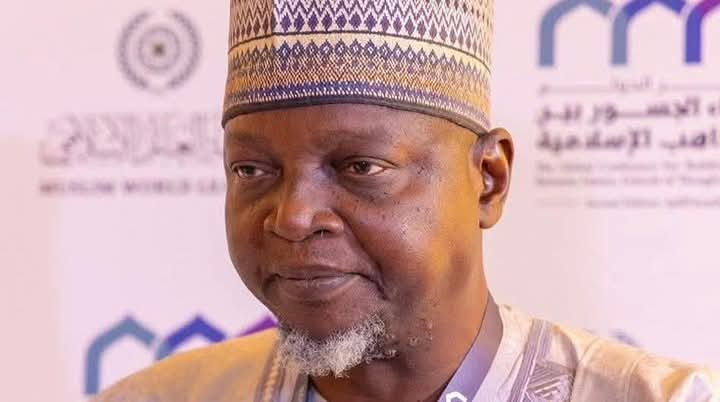THURSDAY April 10, 2025 |
By thenewsdesk.ng
The National Chairman of the Council of Ulama’Jibwis Nigeria, Sheikh Dr. Ibrahim Jalo Jalingo has called for the execution of those who leave Islam for another religion.
In a controversial post on his Facebook page on Thursday, Jalingo reignited a contentious debate on apostasy and religious conversion.
NaijaNEWS House reports that Jalingo, an outspoken cleric within the Islamic community, declared that “whoever changes his religion should be killed,” citing a Hadith attributed to the Prophet Muhammad (PBUH).
The statement was made in response to a criticism from a user identified as Masussuka, who had questioned the authenticity of the Hadith, claiming that it contradicts the Qur’an.
The Hadith in question, “Whoever changes his religion, then kill him,” has been a point of contention among Islamic scholars for centuries, with varying interpretations regarding its relevance and application in modern times.
In his post, Sheikh Jalingo responded by asserting that the Hadith does not contradict the teachings of the Qur’an.
He emphasised that the Qur’an, in verses such as Surah At-Tawbah (9:5) and Surah An-Nisa (4:89), explicitly permits the killing of polytheists and apostates.
According to Jalingo, these verses justify the execution of individuals who abandon Islam and convert to another religion.
“Only an ignorant person like Masussuka would claim that the Hadith ‘Whoever changes his religion, kill him’ contradicts the Qur’an,” Jalingo said.
“In fact, the Qur’an itself not only permits the killing of those who commit apostasy but even allows the killing of all polytheists.”
He further argued that the verse: “There is no compulsion in religion” (La ikraha fi al-deen) has been abrogated by the aforementioned verses, which he believes more clearly dictate the treatment of apostates.
Jalingo also referenced the principle of “naskh,” or abrogation, within Qur’anic revelation to support his stance.
In a final critique of Masussuka, Jalingo dismissed his opponent as a “deeply ignorant and morally depraved individual,” using derogatory language to further discredit the critic’s position.
Jalingo’s statement has drawn the ire of religious leaders, while many Islamic scholars argued that such views promote intolerance and violence.
Many people have expressed concern against his stand about the implications of this rhetoric, particularly in a multi-religious society where freedom of belief is enshrined in both national and international law.
Others have called for greater emphasis on religious tolerance, peace, and coexistence in the face of rising global tensions between different faiths.
Related posts
Categories
- Advertisements (1)
- Agriculture (45)
- Breaking News (26)
- Business (598)
- Crime (989)
- Education (319)
- Entertainment (128)
- Features (13)
- For The Records (43)
- Foreign News (1,189)
- Health (219)
- Home News (332)
- Interview (9)
- Judiciary (349)
- Lifestyle (140)
- Local News (111)
- National News (1,448)
- Opinion (26)
- Politics (1,012)
- Religion (157)
- Science and Technology (125)
- Security (680)
- Sports (880)
- States' News (819)
- Transportation (330)
- Uncategorized (10)

